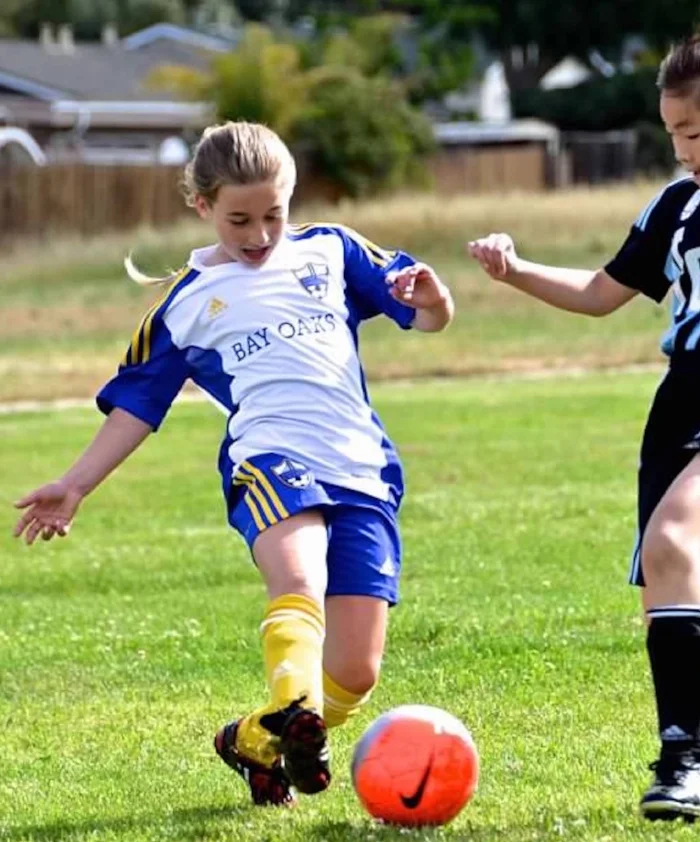Last week, over dinner, my daughter brought up an uncomfortable situation she was experiencing with an unhappy friend whose project wasn’t selected by their teacher to advance in a competition. The teacher could choose only three finalists, and her friend wasn’t chosen. The problem, her friend explained to her, wasn’t that she didn’t make it. No, what made her upset was how the teacher had shared her reasoning.
“She told her that Virginia had put more work into her project and that Elijah’s was more polished,” my daughter explained. My daughter's friend was uncomfortable with being directly compared to her peers.
“She must not play competitive sports,” my son said.
“What do you mean?” I asked.
“There are only so many spots. You are competing with other players who share your position. Coaches have to compare you to your teammates. If you don’t measure up, you get cut,” he explained.
Who was this wise young man I could have sworn only this morning, didn’t have fused frontal lobes as he returned to the house not once, not twice, but THREE times as he remembered keys, wallet, and then his phone? He painfully knew his subject having just re-made the Varsity baseball team…after initially being cut. His position was tenuous, and he felt the constant stress to keep pace with the other catchers lest he get ‘sent down’ again.
“I never thought about that before, but you're right,” my daughter said. “I’ve gotten a lot less sensitive about not making the team because someone else was better than me. Yeah, it’s disappointing, but I can’t control how many other players play outside back and, of course, I can’t control how good they are.”
Huh. This was a life lesson I hadn’t expected. My husband and I had enjoyable team-sport experiences in our childhoods, so we encouraged the kids to try out for one they liked. We hoped they would reap the benefits of teamwork, better body image, and more self-confidence.
I had given no thought; once they moved from recreational league to competitive league, they might learn more. The kids were gaining valuable perspective to add to their 'life toolbox': today; one outside-back slot on the soccer team and one catcher position on the baseball team…tomorrow; one job opening.
In fact, research by Ernst & Young found that the majority (52%) of C-suite women (CEO, CIO, CFO, COO) played sport at the much more competitive university level, compared to just 39% of women at other management levels. And C-suite women note that their competitiveness has been a more significant factor in their careers than more junior women: 37% cite this as a critical factor, compared with 26% of others.
“How do you explain Mrs. Wang then?” I invoked my son’s Chinese teacher. “She can’t see any redeeming quality in sports, and yet she is one of the most competitive people I know!”
My son lost it, milk almost coming out of his nose recalling, I’m sure, how she had admonished him for missing her last period Chinese class due to a Varsity baseball game. “School is more important than silly games,” she had lectured him.
Ah, my ‘little’ boy was back.
“The Chinese have their own competitive sport. It’s called the gaokao,” my Hong-Kong raised husband chimed in. Gaokao is China’s highest stakes test which pits students against each other and can make or break the test taker’s future. It is the sole determinant of whether you gain or get denied entrance to a university. It can impact your career and even your marriage prospects.
Beyond a doubt, sports isn’t the only way to experience competition. Any competition would work, although we don't need to go as far as gaokao. However, I suspect you need consistent exposure to get the effect. This isn’t a statistically valid sample, but it took about three tryouts and experiencing either defeat or achievement before my children could take competition with peers in stride. There were fewer tears and blame, and more balanced analysis of their and other's shortcomings.
Debate club, music competitions, and running for student leadership positions are fantastic examples. In all these cases, either you win, or you don’t. Someone else bests you, or you beat them.
The American school system, unless it is a curved test, gives everyone a shot at getting an A. Schools abhor competition and although this is fantastic when they are young and developing their self-esteem, I wonder if more exposure to competition wouldn’t make them more world ready.
As we move through life, comparisons are unavoidable. We will be stronger adults when we learn to take the strengths from competition, like increasing your drive to achieve and taking more risks and steal ourselves to the downsides, like experiencing jealousy or personal devastation.
“It’s like that Russian skater,” my daughter said referring to the recent Winter Olympics. “She was 18 and expected to own the competition, but then this other Russian skater turned 15-years-old right before the Olympics. She 'stole' the gold from her. It was so sad, but it wasn’t unfair. She couldn’t control how amazing the younger girl would be.”
The next time I’m about to complain about another 45min drive to an away game, I’ll try to catch myself and, instead, take a moment to give a small bit of thanks.





